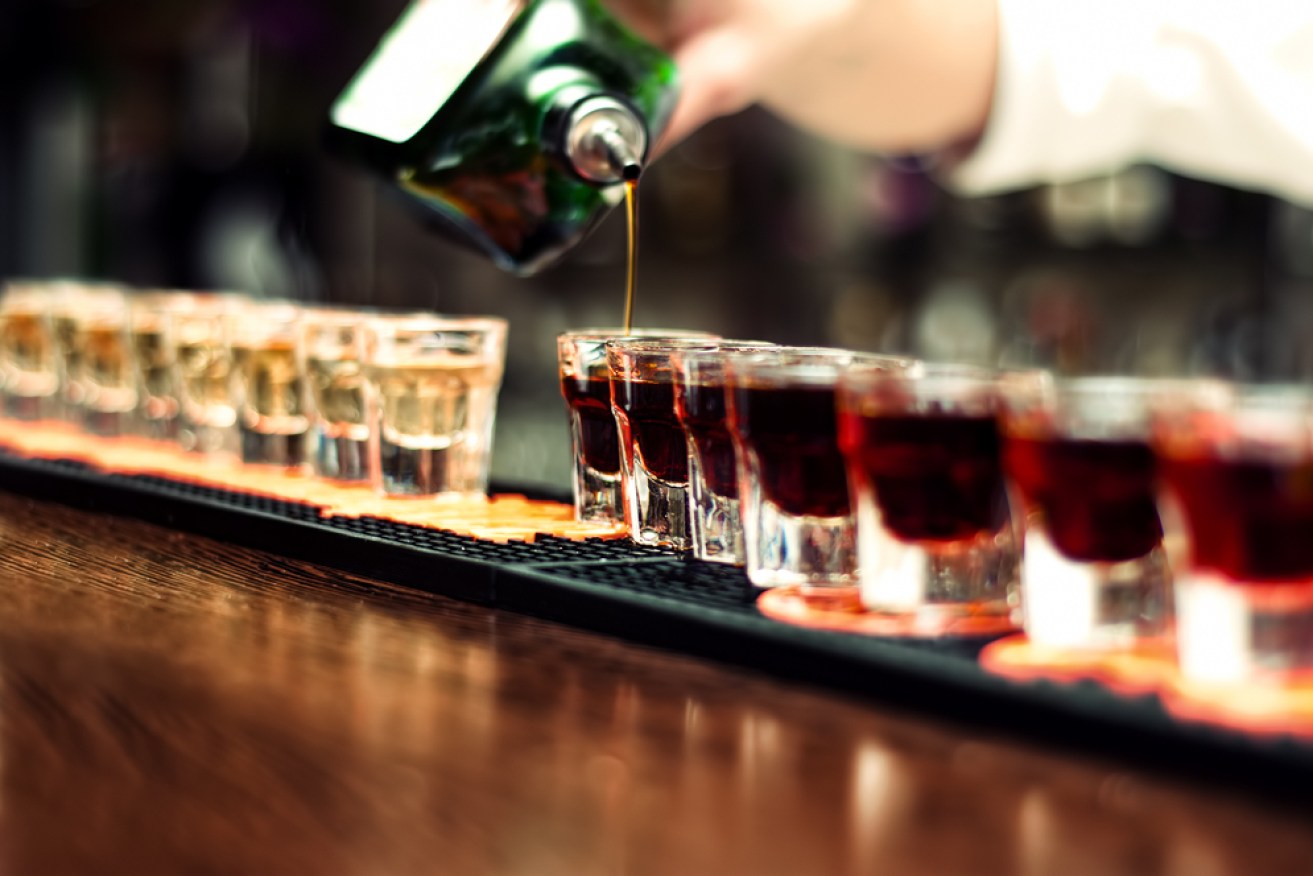On Sunday, several thousand Australians swore to go sober for an entire month.
On the face of it, the FebFast campaign makes perfect sense in a country where almost 40 per cent drink alcohol weekly.
The drug, which is in the same class of carcinogens as tobacco and asbestos, costs society more than twice what it generates in taxes, and kills thousands each year.
• Booze bother: are you drinking too much?
• Alcohol kills 15 Aussies a day
• How we’d stop booze-fuelled violence: Top Aussies

Early lockout laws, such as those in NSW, may have reduced the number of drunken assaults, and yet booze-fuelled violence, disease and road crashes may still claim up to 15 lives every day.
Taking a four-week break from Australia’s most widely used drug makes common sense, but does it actually have health benefits?
World-renowned alcohol expert Dr George Koob says some drinkers may benefit “considerably” from a booze-free month, depending on how much they usually consume.
Dr Koob, who is director of the US National Institute on Alcohol Abuse and Alcoholism, tells The New Daily that a week of binging (over Christmas for example) can be enough to cause serious harm, which a month off can reverse.
“A moderate drinker who drinks heavily for just a week can develop fatty liver, the earliest and reversible stage of alcoholic liver disease,” Dr Koob says.
Are you a ‘heavy drinker’?
Acceptable drinking is no more than two standard drinks a day, Australian guidelines say. Risk is low if you stick to this limit, which is approximately two beers, 1.5 glasses of wine or two nips of spirits.
But as Professor Maree Teesson, a senior researcher at the National Alcohol and Drug Research Centre, has told The New Daily previously: “Two is so far from what our normal experiences are.”
Dr Koob, whose native US recommends no more than one standard drink a day for women, says drinking at these low levels may protect the heart, raise good cholesterol, reduce the risk for type 2 diabetes and prevent artery blockages and stroke.
Anything above this is the danger zone.
“A heavy drinker would be expected to benefit considerably from a drinking hiatus,” Dr Koob says.
The benefits of skipping booze
Turning Point clinical director Dr Matthew Frei acknowledges that FebFast is “gimmicky”, but says there is nothing wrong with gimmicks if they get results.
He says the first week can be the hardest.
“In the first week or two you are feeling a bit shaky and wondering what you’re doing,” Dr Frei says.
“By the second week, you actually start to notice some recovery.
“Third week, your health is really getting better.
“Fourth week, it’s all coming together and you’re starting to objectively look at what you are like alcohol-free and asking yourself if that’s what you want to be.”
Odyssey House’s Caroline Long, an alcohol and drug clinician and researcher for more than 20 years, predicts that a month off could improve your sleep and mental health, help you lose weight and give your body a break from toxins.
“Alcohol is a toxin. We use it to sterilise surfaces and preserve foods,” Ms Long says.
After a month, your tolerance for alcohol will also reduce, Ms Long says, which may help you save money if and when you do start drinking again.
Dr Michael Rich, a dermatologist, says avoiding alcohol for a month would also be “extremely beneficial” for your complexion, as booze can damage skin proteins causing premature ageing and trigger redness and acne.
“Alcohol and skin simply do not mix well together,” Dr Rich says.
The verdict
National Alliance for Action on Alcohol co-chair Mike Daube says alcohol breaks can encourage heavy drinkers to reduce their alcohol use for the rest of the year.
“If FebFast, Dry July, Ocsober and the rest encourage people to think about their drinking and maybe back away from harmful levels, while also raising money for charities, they have a useful role to play,” Professor Daube says.
National Drug Research Institute director Steve Allsop warns that taking a month off should not be used an excuse to binge, or else the break may do more harm than good.
“You can’t drink a year’s worth of beer in 11 months and expect that by taking a month off you will be right. It doesn’t work that way,” he says.
“But what it might do is alert you to how insidious alcohol has become.”









